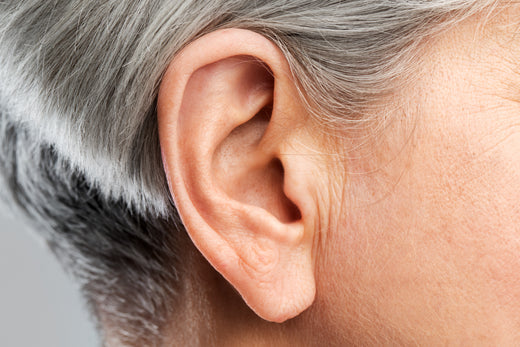Earwax might not be a topic that comes up often in everyday conversation, yet it plays a pivotal role in our overall ear health. Before we look at when it's appropriate to remove earwax, let's take a moment to understand its nature and the vital functions it serves.
What Is Ear Wax?
Earwax, scientifically known as cerumen, is more than just a sticky substance found in our ears. Produced by glands within the ear canal, its primary role is to safeguard our ears. Thanks to its antibacterial properties, earwax acts as a barrier, trapping dust, dirt, and other foreign particles, preventing them from reaching the sensitive eardrum. This natural defender not only keeps our ears clean but also facilitates the removal of dirt and dead skin cells, ensuring a self-cleaning process that maintains ear health.
When Do I Need To Clean My Ears?
While earwax is inherently beneficial, there are instances where its removal becomes necessary. Excessive buildup can lead to a range of uncomfortable symptoms, including earaches, hearing loss, tinnitus (ringing in the ears), itching, and even infections. These symptoms often signal an impaction, a condition where earwax has accumulated extensively, blocking the ear canal. Recognizing these signs is important to take action quickly.
What Happens If I Don’t Clean It?
Failing to address excessive earwax buildup can result in a host of unpleasant outcomes. A clogged ear canal not only impairs hearing but can also lead to infections and affect your balance. The importance of managing earwax buildup proactively cannot be overstated, as it helps prevent these more severe complications.
Over-cleaning Your Ears
On the flip side, overly aggressive cleaning practices can be detrimental. Over-cleaning may strip the ear canal of its natural lubrication, leading to dryness, irritation, and increased susceptibility to infections. Maintaining the natural balance of earwax is essential for healthy ear function.
How to Clean Your Ears
While there are many options to clean your ears, ear irrigation stands out as the safest and most convenient choice. Utilizing a gentle irrigation technique, these devices soften and flush out earwax, ensuring the ear canal is cleaned without undermining its natural protective mechanisms. However, make sure that you use industry-certified devices, such as the Eddy, to ensure that you do not harm your ears in the process.
Conclusion
Earwax, while protective, requires careful management to prevent buildup that can lead to discomfort and health issues. Safe removal practices are paramount to avoid harming the natural defenses of your ears or introducing infections. If you're dealing with symptoms of earwax buildup, taking action is essential. Ear irrigators are an ideal solution, offering a safe, effective, and gentle approach to earwax management. If symptoms persist, please see a healthcare professional.







Share:
Related Blogs
Best Methods to Remove Earwax